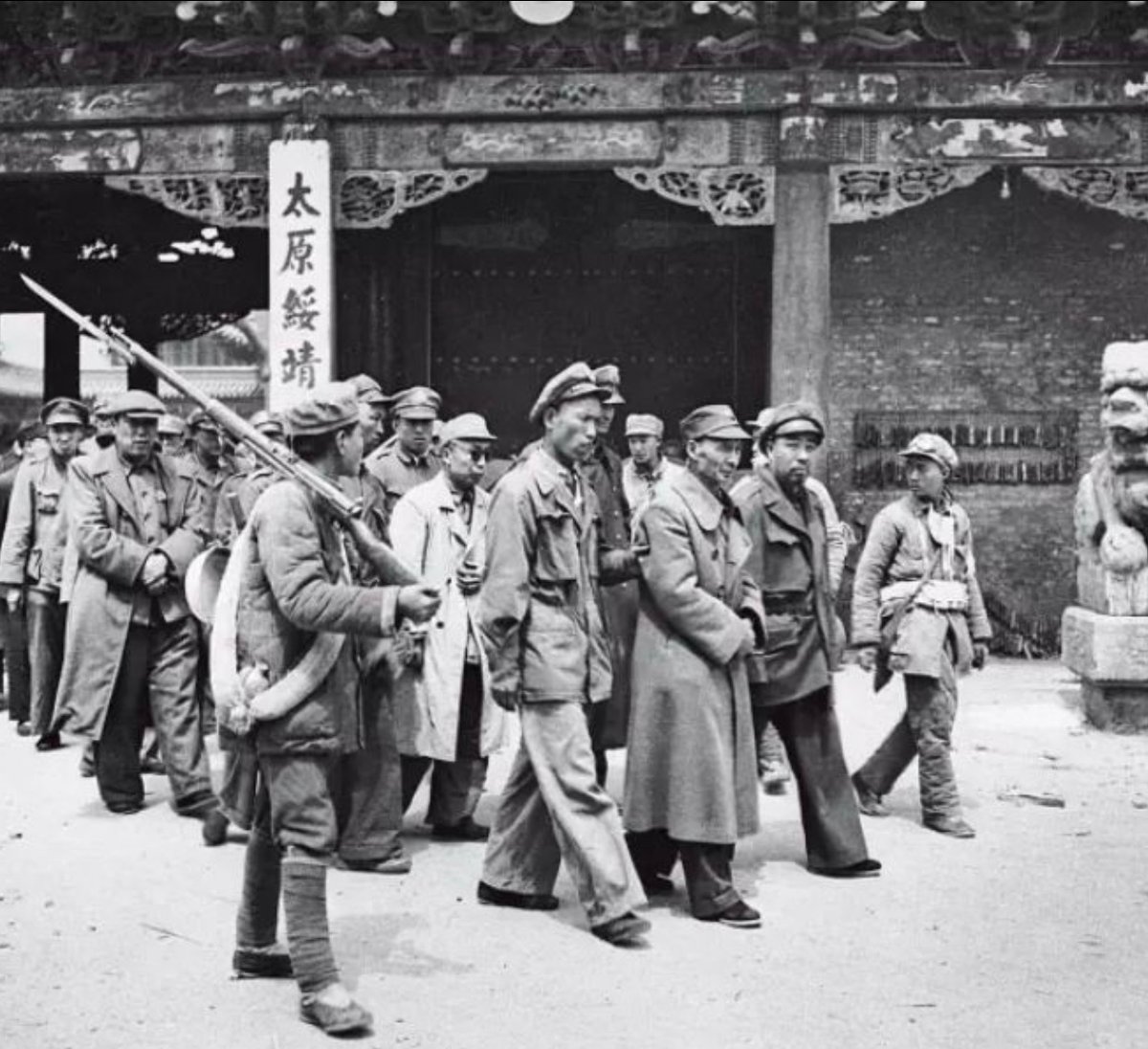Don’t count on your boss coming back.
In March 1949, as vicious Battle of Taiyuan was increasingly tipping in favor of communists, the provincial warlord there, General Yan Xishan (the “Earthy Emperor of Shanxi”), was looking to flee.
To the public, he loudly proclaimed that /1
In March 1949, as vicious Battle of Taiyuan was increasingly tipping in favor of communists, the provincial warlord there, General Yan Xishan (the “Earthy Emperor of Shanxi”), was looking to flee.
To the public, he loudly proclaimed that /1
https://twitter.com/simonbchen/status/1294469935318487040
he would fight the communists to the bitter end. Not only did he order a supply of poison capsules for himself and his entourage, he even designated former Imperial Japanese Army soldiers serving in his semi-private army to shoot him at very last moment /2
https://twitter.com/simonbchen/status/1305156605873274880?s=20
—in his words, he could only trust fanatical Imperial Japanese soldiers, and not even his own Chinese soldiers, to commit that extreme deed.
But he didn’t live up to his word.
Two key events in early 1949 gave him a convenient excuse to hightail out of /3
But he didn’t live up to his word.
Two key events in early 1949 gave him a convenient excuse to hightail out of /3
https://twitter.com/simonbchen/status/1305347689874296832?s=20
of Taiyuan.
1st, Chiang Kai-shek was (on paper) kicked out of political office as President of Republic of China, after the string of catastrophic defeats of ROC Army in the Liaoshen, Pingjin, and Huaihai Campaigns of 1948-49. In that political vacuum, General Li Zongren /4
1st, Chiang Kai-shek was (on paper) kicked out of political office as President of Republic of China, after the string of catastrophic defeats of ROC Army in the Liaoshen, Pingjin, and Huaihai Campaigns of 1948-49. In that political vacuum, General Li Zongren /4

became Acting President, but as a man of insufficient political influence, he needed other powerful fellow generals to back him up in capital at Nanking—General Yan Xishan was a great candidate for that.
2nd, the massive aerial supply effort of Taiyuan, led by retired American /5
2nd, the massive aerial supply effort of Taiyuan, led by retired American /5
Major General Claire Lee Chennault (immortally of Flying Tigers fame) and operated by his front company Civil Air Transport, and by the ROC Air Force, was faltering. Yan Xishan needed to get to capital Nanking in person to beg for renewed relief.
How convenient.
Yan Xishan /6
How convenient.
Yan Xishan /6

then secretly arranged for the Republic of China national government in Nanking to send him an official radio telegram, summoning him for political duties to the capital, ostensibly to help with ongoing peace "negotiations" with communists.
The telegram was duly sent, and read /7
The telegram was duly sent, and read /7
aloud in presence of Yan Xishan in front of his entourage.
Henceforth, I must leave, the old man declared. But he told his entourage, "if you need me for anything, don't hesitate to let me know—I will hurry back in person."
Immediately afterwards, he hurried away to Taiyuan /8
Henceforth, I must leave, the old man declared. But he told his entourage, "if you need me for anything, don't hesitate to let me know—I will hurry back in person."
Immediately afterwards, he hurried away to Taiyuan /8
Airport—and so in afternoon of March 29, 1949, he flew away from Taiyuan and the province of Shanxi that he ruled as its “Dirt Emperor” for 3 decades—for last time, never to return ever again.
Whether his troops remaining in the city were naïve to believe him, is unclear. /end
Whether his troops remaining in the city were naïve to believe him, is unclear. /end

• • •
Missing some Tweet in this thread? You can try to
force a refresh





